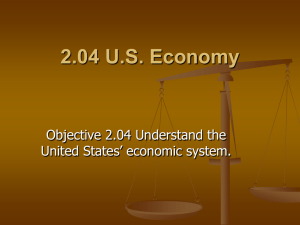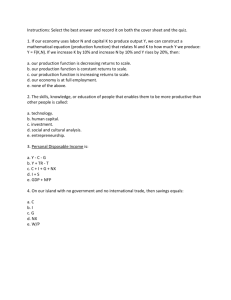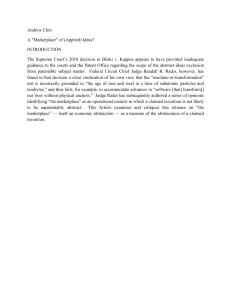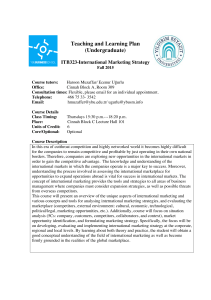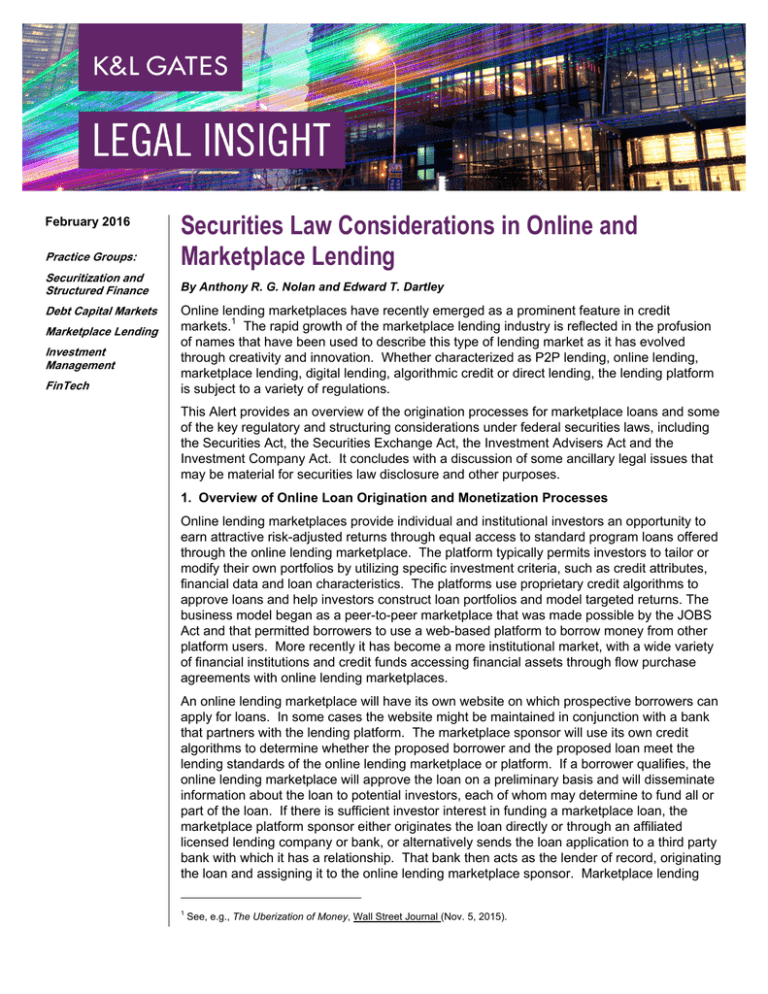
February 2016
Practice Groups:
Securitization and
Structured Finance
Debt Capital Markets
Marketplace Lending
Investment
Management
FinTech
Securities Law Considerations in Online and
Marketplace Lending
By Anthony R. G. Nolan and Edward T. Dartley
Online lending marketplaces have recently emerged as a prominent feature in credit
markets.1 The rapid growth of the marketplace lending industry is reflected in the profusion
of names that have been used to describe this type of lending market as it has evolved
through creativity and innovation. Whether characterized as P2P lending, online lending,
marketplace lending, digital lending, algorithmic credit or direct lending, the lending platform
is subject to a variety of regulations.
This Alert provides an overview of the origination processes for marketplace loans and some
of the key regulatory and structuring considerations under federal securities laws, including
the Securities Act, the Securities Exchange Act, the Investment Advisers Act and the
Investment Company Act. It concludes with a discussion of some ancillary legal issues that
may be material for securities law disclosure and other purposes.
1. Overview of Online Loan Origination and Monetization Processes
Online lending marketplaces provide individual and institutional investors an opportunity to
earn attractive risk-adjusted returns through equal access to standard program loans offered
through the online lending marketplace. The platform typically permits investors to tailor or
modify their own portfolios by utilizing specific investment criteria, such as credit attributes,
financial data and loan characteristics. The platforms use proprietary credit algorithms to
approve loans and help investors construct loan portfolios and model targeted returns. The
business model began as a peer-to-peer marketplace that was made possible by the JOBS
Act and that permitted borrowers to use a web-based platform to borrow money from other
platform users. More recently it has become a more institutional market, with a wide variety
of financial institutions and credit funds accessing financial assets through flow purchase
agreements with online lending marketplaces.
An online lending marketplace will have its own website on which prospective borrowers can
apply for loans. In some cases the website might be maintained in conjunction with a bank
that partners with the lending platform. The marketplace sponsor will use its own credit
algorithms to determine whether the proposed borrower and the proposed loan meet the
lending standards of the online lending marketplace or platform. If a borrower qualifies, the
online lending marketplace will approve the loan on a preliminary basis and will disseminate
information about the loan to potential investors, each of whom may determine to fund all or
part of the loan. If there is sufficient investor interest in funding a marketplace loan, the
marketplace platform sponsor either originates the loan directly or through an affiliated
licensed lending company or bank, or alternatively sends the loan application to a third party
bank with which it has a relationship. That bank then acts as the lender of record, originating
the loan and assigning it to the online lending marketplace sponsor. Marketplace lending
1
See, e.g., The Uberization of Money, Wall Street Journal (Nov. 5, 2015).
Securities Law Considerations in Online and Marketplace
Lending
platforms sometimes also purchase whole loans from third parties in secondary market
transactions.
An online lending marketplace sponsor has several avenues available to it for funding the
underlying loans. It may sell entire portfolios of loans pursuant to whole loan purchase and
sale agreements to investors that want hold loans on their own balance sheet, which may be
on a single portfolio or on a flow basis.
Alternatively, the marketplace sponsor may issue unsecured payment-dependent notes
(“Marketplace Platform Notes”) to investors who meet the online lending marketplace’s
financial suitability requirements and the eligibility requirements under the Securities Act and
that and have established an account with the platform. The Marketplace Platform Notes are
special, limited obligations of the online lending marketplace issuer and pay through
obligations that are dependent on payments received by the marketplace platform on the
underlying loans. The issuer’s obligation to make payments on a Marketplace Platform Note
is limited to an amount equal to the note holder’s pro rata share of amounts it receives with
respect to the corresponding borrower loan, net of servicing fees. Marketplace Platform
Notes typically bear interest from the date of issuance, have a fixed rate, are payable
monthly and have an initial maturity of three or five years from issuance. A note holder’s
recourse is generally very limited in the event that borrower information is inaccurate for any
reason.
An online lending marketplace may also afford facilities to eligible investors (such as
accredited investors or qualified purchasers) to establish a relationship with a registered
investment advisor in order to invest in Marketplace Platform Notes, or to purchase passthrough certificates or other interests in trusts or entities established by the marketplace
sponsor to purchase Marketplace Platform Notes selected by the investor.
2. Registration Requirements and Exemptions for an Offering of Marketplace Platform
Notes
Marketplace Platform Notes are presumptively subject to securities regulation as investment
contracts. They may be offered in exempt transactions, typically in private placements under
Regulation D under the Securities Act of 1933 (the “Securities Act”), or, less commonly, in
unregistered public offerings pursuant to Regulation A under the Securities Act or in public
offerings that are registered pursuant to Section 5 of the Securities Act.
a. Private Placements
If Marketplace Platform Notes are offered in multiple states through a Regulation D private
placement, the sponsor must decide whether to offer them in compliance with Rule 506(b),
or Rule 506(c) , which permits the use of general solicitations and advertising. Rule 506(b)
prohibits the use of general solicitations and advertising. On the other hand, Rule 506(c)
does not contain that prohibition and permits offerings to be advertised more widely,
including in print, digital and electronic media. Rule 506(c) was added to Regulation D
pursuant to the Jumpstart Our Business Startups Act (“JOBS Act”), to broaden the scope of
communications with prospective investors without causing a private placement to lose its
exemption from registration.
A marketplace lender that offers Marketplace Platform Notes in reliance on Rule 506(b) must
have a reasonable belief that each prospective investor who views offering materials for the
Marketplace Platform Notes are “accredited investors” as defined in Rule 501(a) under
2
Securities Law Considerations in Online and Marketplace
Lending
Regulation D.2 To that end, the marketplace lender must screen potential investors for their
accredited investor status prior to allowing them to access the platform and view any
offerings. It must also limit its marketing communication to avoid being considered to be
engaged in a general solicitation of offers to purchase Marketplace Platform Notes.
On the other hand, a marketplace lender may take advantage of the flexibility provided by
the JOBS Act by offering Marketplace Platform Notes pursuant to Rule 506(c). An offering
under Rule 506(c) is not subject to any limitations on communications with prospective
investors or solicitation activity. In a 506(c) offering the prospective investors may also view
offering materials before the issuer has verified their status as accredited investors.
However, in a Rule 506(c) offering the issuer must take reasonable steps to verify” that all
persons who actually purchase Marketplace Platform Notes are accredited investors as
defined in Regulation D. Rule 506(c) sets forth certain methods of verification that provide a
safe harbor from liability if they are followed.3 The staff of the Securities and Exchange
Commission has indicated that the verification standards under Rule 506(c) are not
materially different from those under Rule 506(b).4
A Form D must be filed in each state in which an offering is made pursuant to Regulation D,
regardless of whether it is made under Rule 506(b) or Rule 506(c). The cost of these multistate filings may lead an online lending marketplace sponsor to consider limiting each
offering to purchasers in a discrete number of states.5
b. Public Offerings Pursuant to Regulation A and A+
Regulation A, as amended in 2015 pursuant to the JOBS Act (known as “Regulation A+”),
permits qualifying issuers to engage in public offers and sales of up to an annual limit ($50
million or $20 million with sublimits for sales by selling security-holders) depending on
whether the issuer is a tier 1 issuer or a tier 2 issuer as defined in Regulation A+. As with a
registered offering, Regulation A+ requires that the issuer provide specified disclosures to
investors and file an offering statement with the Securities and Exchange Commission (the
“SEC”), and it provides the SEC with power to issue stop orders. (Both tier 1 and tier 2
issuers are subject to the same basic requirements while tier 2 issuers are also subject to
additional disclosure and ongoing reporting requirements.) Securities issued pursuant to
2
Generally, the term “accredited investor” includes companies with total assets of more than $5 million, companies in
which all equity owners are accredited investors, natural persons with a net worth (alone or with a spouse) of more than
$1 million, and natural persons with an individual income in excess of $200,000 in each of the two most recent years, or
joint income with a spouse in excess of $300,000 in each of those years, and a reasonable expectation of reaching the
same income level in the current year.
3
The safe harbor methods for verification generally include reviewing Internal Revenue Service forms reporting income,
reviewing certain statements of assets provided by regulated financial entities in conjunction with consumer reports
describing liabilities, and obtaining written confirmation from certain registered entities that they have taken reasonable
steps to verify accredited status.
4
See generally SEC, Eliminating the Prohibition Against General Solicitation and General Advertising in Rule 506 and
Rule 144A Offerings, 78 Fed. Reg. 44771 (July 24, 2014) (discussing the factors to consider in determining whether a
method constitutes “reasonable steps to verify,” including the nature of the purchaser and the type of accredited investor
that the purchaser claims to be; the amount and type of information that the issuer has about the purchaser; and the
nature of the offering, such as the manner in which the purchaser was solicited to participate in the offering, and the terms
of the offering, such as a minimum investment amount). See also SEC, Use of Electronic Media, 65 Fed. Reg. 25843,
25852 n. 85 and accompanying text (Apr. 28, 2000) (stating that websites that allow for self-certification of accredited
investor status “call into question” the ability of an issuer to form a reasonable belief regarding investor qualifications).
5
Rule 147 under the Securities Act provides an exemption for offerings of securities entirely within a single state. That
would not be of practical significance to marketplace platforms because the Internet distribution typically targets investors
across wider geographic areas.
3
Securities Law Considerations in Online and Marketplace
Lending
Regulation A+ are not “restricted securities” for purposes of Rule 144 under the Securities
Act, which means they can be resold without restriction as if they were issued in a registered
offering. Regulation A+ provides greater flexibility than Regulation D for smaller online
lending marketplaces that are ramping up volume. However, the annual volume limits make
it impracticable for an online lending platform to rely on Regulation A+ for continuous
offerings of the sort that are commonly registered on Form S-1.
c. Registered Offerings on Form S-1
In order for Marketplace Platform Notes to be offered to the public without the volume
restrictions of Regulation A+, they must be offered and sold pursuant to a registration
statement that is filed with the SEC. The offer and sale may be registered on either Form S1 or S-3, but as a practical matter marketplace lending platforms will generally use Form S-1
to register a continuous offering of securities rather than registering a securities shelf on
Form S-3.
A registered offering of Marketplace Platform Notes involves significant regulatory and other
issues. These include significant limitations on the sponsor’s ability to offer multiple series of
Marketplace Platform Notes using a single base prospectus for multiple offerings. In
continuous offerings they also include complications arising from the fact that Form S-1
(unlike Form S-3) does not provide for incorporation by reference of subsequent periodic
reports.
As a result, the registration process may be lengthy and costly, and the issuer will be subject
to ongoing requirements to monitor and update the prospectus if it is used for continuous
offerings. For example, every time the prospectus is updated to include reports under the
Securities Exchange Act (the (“Exchange Act”) that were filed after the effective date of the
Form S-1, the issuer will have to consider whether it needs to make additional changes as
required by Item 512(a)(1) of Regulation S-K. These could include an update of prospectus
information as required by Section 10(a)(3) of the Securities Act if the prospectus is more
than 9 months old, updated disclosure to reflect facts or events that represent a fundamental
change in the information set forth in the registration statement and updated disclosure to
reflect material changes in the plan of distribution.
Other changes may be made in a prospectus supplement filed pursuant to Rule 424(b). If
the registrant files a post-effective amendment, it can incorporate previously filed Exchange
Act reports by reference if it satisfies the conditions in Form S-1 that allow incorporation by
reference.
d. Credit Risk Retention Implications Under Rule 15G
Typically, Marketplace Platform Notes are not tranched or are backed by pools of loans, so
they are not generally subject to securitization regulatory considerations. However, an online
lending marketplace or an originating bank could be affected by securitization activity of
investors.
Securitization rules could be relevant because the marketplace sponsor has agreed to
repurchase loans for breaches of asset-level representations and warranties it makes that
can ultimately be enforced by the securitization investors or on their behalf to the
marketplace lending platform or the originator to satisfy repurchase demands. It can also be
relevant to the extent that the online lending marketplace or origination bank is directly or
indirectly by the credit risk retention requirements under the Securities Act. The remainder of
this section will discuss certain implications of securities regulations applicable to
4
Securities Law Considerations in Online and Marketplace
Lending
securitization that may have a bearing on the posture of an online lending marketplace vis-àvis its investors who may engage in securitizations of those loans.6
Marketplace loan securitizations issued after December 24, 2016 will be subject to the credit
risk retention requirements of Section 15G of the Securities Act and Rule 15G thereunder.7
Rule 15G generally requires the person who organizes a securitization and sells assets to
the issuing entity (the “sponsor”) to retain 5 percent of the credit risk associated with a
securitization, either directly or through a “majority-owned affiliate.” The person holding the
credit risk may not transfer, sell or hedge an economic interest in it and cannot finance it on a
non-recourse basis. The securitization sponsor can reduce its required risk retention
obligation to the extent that an originator of at least 20% of the securitized assets in the
underlying asset pool retains the credit risk on those assets. Although an investor acquires
marketplace loans from the online lending platform that originated and services those assets,
online lending marketplaces typically do not seek to retain credit risk on the assets it has sold
to investors. Online lending marketplaces may have different policies in this area depending
on how well established they are, how much they rely on institutional investors, and the
depth of their capitalization.8
While the application of Rule 15G is generally straightforward in the case of a securitization
by an investor or an online lending marketplace, there are other circumstances where the
application of credit risk retention rules to marketplace lending participants may raise novel
interpretive questions. These include such matters as whether the credit risk retention
requirements a would apply to an online lending marketplace that sells loans under future
flow agreements to a purchaser who may reasonably be expected to securitize them, and
whether Marketplace Platform Notes may be considered to be “asset-backed securities”
(“Exchange Act ABS”), as defined in Section 3(a)(77) of the Exchange Act and thus subject
to Rule 15G credit risk retention requirements. In that case, the relationship of an originating
bank and the online lending marketplace may also be of importance. Where a marketplace
lending platform establishes a trust or other entity to hold Marketplace Platform Notes and
issue pass-through certificates backed by them and paid from them, there may also be a
question whether the pass-through certificates constitute Exchange Act ABS.
3. Registration and Compensation Issues under the Exchange Act and the Investment
Advisers Act
a. Broker-Dealer Registration
Transaction-based compensation has long been regarded by the SEC as a hallmark
characteristic of a broker-dealer under Section 15 of the Exchange Act.9 Therefore, an
online lending marketplace could potentially be required to register as a broker-dealer under
the Exchange Act if it were to charge a sales commission or receive other transaction-based
compensation upon the sale of Marketplace Platform Notes. In order for the marketplace
sponsor not to be considered to be a broker-dealer, the compensation paid to it may be
6
For a discussion of securitization matters applicable to investments in Marketplace Platform Notes, please see our alert
Financing Marketplace Loans: Ten Key Things to Know Before Catching the Securitization Wave.
7
Securitizations backed by residential mortgages have been subject to Rule 15G since December 24, 2015.
8
For a closely related discussion of different approaches that some marketplace lending platforms have taken with
respect to recourse on assets sold to securitizers pursuant to asset-level representations and warranties, see Why
Lending Club has shunned securitisations, Financial Times (Jan. 11, 2016).
9
Brumberg, Mackey & Wall, P.L.C., SEC Staff No-Action Letter (May 17, 2010).
5
Securities Law Considerations in Online and Marketplace
Lending
based on a spread between the amounts received on underlying loans and the amounts paid
to investors on the associated Marketplace Platform Notes. Other sources of compensation
that would not be considered to be transaction-based compensation in relation to the sale of
Marketplace Platform Notes could also include origination and servicing fees related to the
underlying loans.
b.
Investment Adviser Registration
Section 202(a)(11) of the Investment Advisers Act of 1940 (the “Investment Advisers Act”)
defines an investment adviser as a person who, for compensation, engages in the business
of advising others as to the value of securities or advisability of investing in, selling, or
purchasing them. In order to avoid potential registration and regulation as an investment
adviser under the Investment Advisers Act or similar state laws, online lending marketplaces
do not charge separate compensation for advice regarding, among other things, which
Marketplace Platform Notes to purchase, the advisability of investing in Marketplace Platform
Notes generally, or any other topic related to the value of any Marketplace Platform Notes or
the advisability of investing in, purchasing or selling them.
In certain cases, online lending marketplace sponsors are affiliated with registered
investment advisers that may provide investment advice to purchasers of Marketplace
Platform Notes. Those entities may be established to manage private funds to hold certain
loans, or to advise investors with respect to the purchase of whole loans, and/or to provide
other related advisory services. Such an advisory affiliate would be entitled to receive
compensation in return for the provision of any such investment advice.
4. Registration as an Investment Company Under the Investment Company Act
As previously discussed, online lending marketplaces typically hold loans on their balance
sheets, or in a subsidiary or other controlled entity. If those loans are deemed to be
securities, a sponsor (or any affiliate holding the loans) may be an investment company as
defined in the Investment Company Act of 1940 (the “Investment Company Act”). This is
because the Investment Company Act generally treats as an investment company any
company that holds more than 40% of the value of its total assets in investment securities.10
If the sponsor or an affiliate were an investment company it would be required to register as
such with the SEC and it would be subject to regulation under the Investment Company Act.
It would be impracticable for a marketplace lending sponsor to operate under the Investment
Company Act. Among other things, the Investment Company Act’s restrictions on affiliated
transactions may prohibit the sponsor from issuing and/or acquiring the loans that serve as
the basis for the Marketplace Platform Notes.
Fortunately, a marketplace lending platform may be able to fit within one of several exclusion
from the definition of investment company. The applicability of these exceptions in a
particular case would depend on the precise model used for a marketplace lending program
and the types of loans its sponsor holds.
Exceptions from the definition of investment company that may be available to a marketplace
lending platform could include the following:
• Section 3(a). Pursuant to Section 3(a)(1)(C) of the Investment Company Act, the sponsor
will not be subject to registration as an investment company if it does not hold more than
10
Investment Company Act, Section 3(a)(1)(C).
6
Securities Law Considerations in Online and Marketplace
Lending
40% of the value of its total assets in investment securities, based on the conclusion that
loans are not securities as defined in the Investment Company Act.
• Section 3(c)(4). Section 3(c)(4) of the Investment Company Act generally excepts from
the definition of an investment company issuers that are engaged in financing small
loans. These generally include consumer loans, but there may be interpretive questions
as to whether section 3(c)(4) would apply to small commercial loans.
• Section 3(c)(5). Sections 3(c)(5)(A) and (B) of the Investment Company Act generally
except from the definition of an investment company issuers primarily engaged in
commercial finance and sales factoring. Online lending marketplaces that specialize in
residential or commercial mortgage loans may be excepted from registration under
Section 3(c)(5)(C) of the Investment Company Act, which generally excepts from the
definition of an investment company issuers primarily engaged in holding mortgage loans
and similar real-estate-related assets.
• Section 3(b)(1). Section 3(b)(1) of the Investment Company Act provides that a company
is not an investment company if it is primarily engaged in a business other than that of
investing, reinvesting, owning, holding, or trading in securities. This may apply to a
marketplace lending platform that is primarily engaged in the business of facilitating peerto-peer lending.
The Investment Company Act analysis applicable to a particular online lending marketplace
or platform would also depend on a wide range of facts and circumstances. These could
include such matters as whether loans are made primarily to consumers or to businesses,
the purpose of the loans, whether loans are secured and, if so, the nature of the collateral
and the nature of the sponsor’s business and balance sheet.
5. Other Regulatory Issues for Online Lending Marketplaces
Online marketplace lending programs must consider a variety of other regulatory issues that
may be germane to the securities regulatory issues described above, and may at a minimum
be material for disclosure purposes. These include consumer protection issues, data
protection and privacy issues, usury, and electronic commerce regulations, among others.
The remainder of this section provides a general overview of some that may be relevant.
a. Challenges to Preemption of State Usury and Licensing Laws
As stated above, while some online lending marketplaces originate loans through affiliated
banks or licensed lending companies, many acquire the loans they originate from banks that
act as lenders of record for the marketplace loans. Sometimes referred to derisively as “renta-charter,” using a federally insured depository institution to serve as lender of record affords
the benefits of federal preemption to subsequent assignees of the loan, including the online
lending platform and its investors. Under federal preemption, a loan can be originated
nationwide without the lender having to be licensed in any state, and the loan can bear an
interest rate and fees that are permitted in the home state of the lender of record, regardless
of the borrower’s location.
There have been some relatively recent challenges to this view of preemption. For example,
in 2014, the West Virginia Supreme Court of Appeals held that a nonbank consumer finance
company that originated loans over the internet through a federally insured bank as lender of
record violated West Virginia’s usury and debt collection laws. The court found that the
finance company, not the lender of record, was the “true lender” of the loans; as a
7
Securities Law Considerations in Online and Marketplace
Lending
consequence, the court voided the loans to borrowers in West Virginia because they
exceeded the West Virginia usury cap.11 More recently, in Madden v. Midland Funding the
United States Court of Appeals for the Second Circuit held that a non-bank debt collector
that purchased written-off credit card accounts from a bank on a servicing-released basis
cannot benefit from federal preemption of state usury laws. That decision, which could
eventually apply to bank-originated consumer marketplace loans, applies in New York,
Connecticut and Vermont, which are the states that comprise the Second Circuit.12
Consequently, the assignee of a loan made to a borrower in one of those states may charge
interest only at a rate that does not exceed the usury limitation of that state.
The Madden decision will adversely affect investors in marketplace loans and may affect the
ability to securitize those loans. This could create a bifurcation in how investors perceive
online lending marketplaces that have their own lending licenses or operate their own banks
as compared to those that purchase loans that are originated by a third-party bank that acts
as lender of record. In the case of the former category of marketplace loans, it may result in
concentration limitations for loans to borrowers who reside in affected states.
b. Privacy, Data Protection and e-Commerce Issues
The nature of the business and the contractual arrangements of online lending marketplaces
raise a variety of issues that may be material to investors in a securities offering. Data
privacy is an important issue for online lending marketplaces, and the disclosure of the
applicable risks and compliance issues is relevant to the securities offering process. Privacy
policies may be material, as well as whether the company provides its borrowers the privacy
notices required under federal law. Another material area of concern may be seen in the
terms of use for the lending marketplace, particularly to the extent that they are subject to
rules governing electronic commerce. The users of online platforms typically consent to
electronically sign all agreements presented to them on the platform, to be bound by their
electronic signature, and to receive all documents and notices electronically.
c. Consumer Protection
To the extent that an online lending marketplace is involved with loans to consumers, the
rules enforced by the Consumer Financial Protection Bureau are a material consideration for
the companies and their investors. These include the Truth in Lending Act, the Fair Credit
Reporting Act, the Equal Credit Opportunity Act and the Consumer Credit Protection Act,
among others. There may also be applicable state laws to the extent that federal law does
not have preemptive effect. These affect disclosures, indemnifications and other material
issues.
Conclusion
As the marketplace lending industry continues to mature and as the regulatory landscape
continues to evolve to address the unique challenges it poses, the issues discussed above
will be critical to the structures and business models of online marketplaces and their
interactions with investors.
11
Cash Call, Inc. v. Morrisey, No. 12-1274, 2014 WL 2404300 (W. Va. May 30, 2014).
12
Madden v. Midland Funding. No. 14–2131–cv. (2d Cir. Decided: May 22, 2015). The Second Circuit Court of Appeals
has been asked to rehear this case en banc, and it may ultimately find its way to the United States Supreme Court, but in
the meantime there is some uncertainty about the enforceability of bank loans that are assigned to non-bank entities,
including in connection with a securitization.
8
Securities Law Considerations in Online and Marketplace
Lending
Authors:
Anthony R. G. Nolan
anthony.nolan@klgates.com
+1.212.536.4843
Anchorage
Austin
Fort Worth
Frankfurt
Orange County
Beijing
Edward T. Dartley
ed.dartley@klgates.com
+1.212.536.4874
Berlin
Harrisburg
Palo Alto
Paris
Boston
Hong Kong
Perth
Brisbane
Houston
Pittsburgh
Brussels
London
Portland
Charleston
Los Angeles
Raleigh
Charlotte
Melbourne
Research Triangle Park
Chicago
Miami
Dallas
Milan
San Francisco
Doha
Newark
São Paulo
Dubai
New York
Seattle
Seoul Shanghai Singapore Sydney Taipei Tokyo Warsaw Washington, D.C. Wilmington
K&L Gates comprises approximately 2,000 lawyers globally who practice in fully integrated offices located on five
continents. The firm represents leading multinational corporations, growth and middle-market companies, capital
markets participants and entrepreneurs in every major industry group as well as public sector entities, educational
institutions, philanthropic organizations and individuals. For more information about K&L Gates or its locations,
practices and registrations, visit www.klgates.com.
This publication is for informational purposes and does not contain or convey legal advice. The information herein should not be used or relied upon in
regard to any particular facts or circumstances without first consulting a lawyer.
© 2016 K&L Gates LLP. All Rights Reserved.
9

